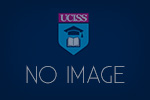
The School of Housing, Building and Planning (HBP) offers a curriculum that is unique amongst programmes of advanced education dealing with the built environment. Whereas curricula in architecture, quantity surveying, engineering or planning are generally based upon a professional training in one of these disciplines, the School eschews professional specialism in favour of a broadly based education cutting across both professional and disciplinary boundaries. As such, it is more correct to describe the broad focus of education at the School as a field of knowledge and skills, rather than the more narrowly focused concept of a single discipline. The students of HBP therefore draw upon many different disciplines during the course of their studies, in so far as they are all relevant to the activities of housing, building and planning.
Both the structure and content of the School’s curriculum reflect the main aim of the School to develop integrative and creative skills across a broad spectrum of knowledge and activities dealing with built environment. The structure of the curriculum is based upon the unit system, whereby the individual student exercises a considerable degree of choice in arranging his/her own programme of studies, so long as he/she satisfies the minimum and maximum requirements for units to be taken in each subject area and course. In addition to the considerable latitude afforded by the unit system, in their second and third year of study, all students have the opportunity to major in one of a number of optional programmes, each dealing with a particular emphasis on Architecture, Interior Design, Urban and Regional Planning, Building Technology, Construction Management, Quantity Surveying and Building Surveying.
Studio projects are the keystone of the curriculum providing the essential creative exercises by which all students, no matter their individual programmes, learn to integrate the many diverse skills and forms of knowledge that comprise the total field of housing, building and planning. Studio projects also provide the most important objective test of each student’s proficiency and creativity. Further integration is provided by the special treatment given to the teaching of theory and methodology in the School. Rather than treating theory and methodology as separate from each other and from other subjects, the School takes the position that all subjects have a theoretical and a methodology component, to be dealt with as an integral part of each subject area. Both theory and practice are therefore identified in the curriculum as mutually inter related components, cutting across and occurring at all levels of the curriculum.
These theoretical and practical components are grouped in the curriculum according to the following categories:
Source : Universiti Sains Malaysia